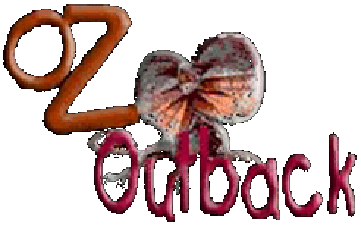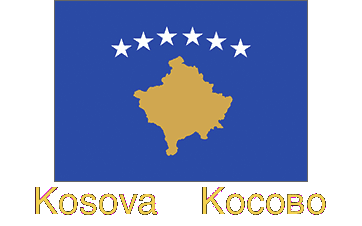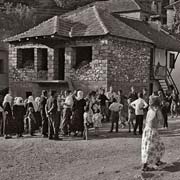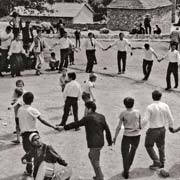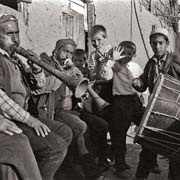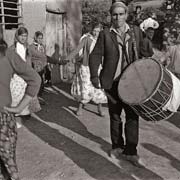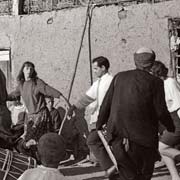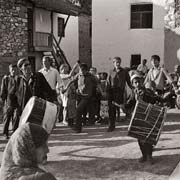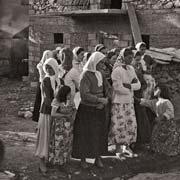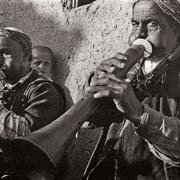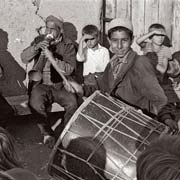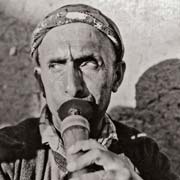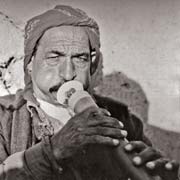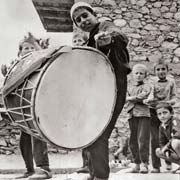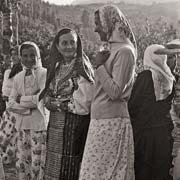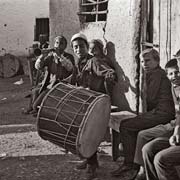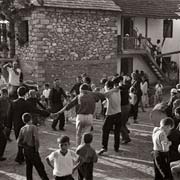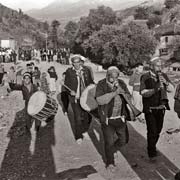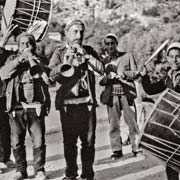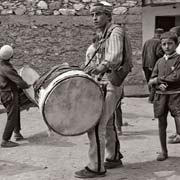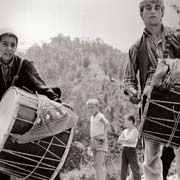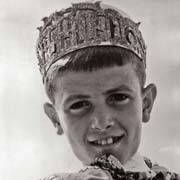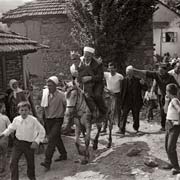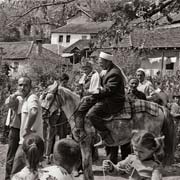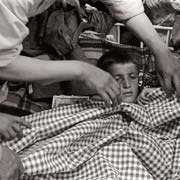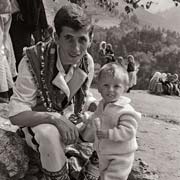Photos of A Muslim Sunat ceremony, Kosovo
A Muslim Sunat ceremony
Islam, mostly Sunni, with a Bektashi minority, is the predominant religion in Kosovo. It came into the region with the Ottoman conquest in the 15th Century. It is now nominally professed by most ethnic Albanians, by the Bosniak, Gorani, and Turkish communities, and by some of the Roma/Ashkali-“Egyptian” community as well. Islam, however, hasn’t saturated Kosovar society, which remains largely secular.
you may then send it as a postcard if you wish.
Muslim boys are traditionally circumcised, and this ceremony, called by its Arabic name “Sunat” is a grand celebration. In Rečane (Reçani), a small village inhabited by Bosniaks (Bosnians, speaking Serbo-Croat), about 10 kilometres southeast of Prizren, a “Sunat” ceremony took place. There was music from a four-man ensemble. It consisted of two “zurla”, a high-pitched oboe-like woodwind instrument and two large “tupan”, large Turkish-style double-headed drums. One of the very enthusiast and inexhaustible drummers was a twelve-year-old boy. The “zurla” players often managed to hold a note indefinitely, by breathing through their nose and simultaneously blowing through their instrument, using their cheeks as a bagpipe. Men and boys would dance in a long line, holding hands or with arms around each other’s shoulders. The women and girls danced separately. It went on all day until the musicians marched off.
The following day Avzija Sagdati, the ten-year-old boy for whom this ceremony was performed, was dressed in his best suit. He had a gold coloured cardboard crown on his head emblazoned with the word “Mašallah”. It is an Arabic phrase of joy, praise or thankfulness, meaning “God has willed it” - a common expression of people in the Balkans who once lived under Turkish rule. Well-wishers stuffed paper money (Yugoslav dinars in those days) in it. Avzija was then hoisted on a horse, with the imam of the local mosque behind him, and paraded through the village, while everyone walked along, the musicians playing as they went, and all his friends chanting “inshallah!” (God’s will), followed by a high-pitched yell. Eventually, they arrived at a spot, screened off by a curtain and Avzija was held upright, an embroidered cloth over his face. The operation was performed quickly while it was suddenly very hushed. The boy did not make a sound. Then there was a wild clapping and shouting by his friends as a recognition of his bravery. His wound seen to, he was covered with a blanket and people came congratulating and throwing more paper money at him. The music had started again, and the dancing resumed, the village celebrating Avzija’s entry into the world of Muslim men.
